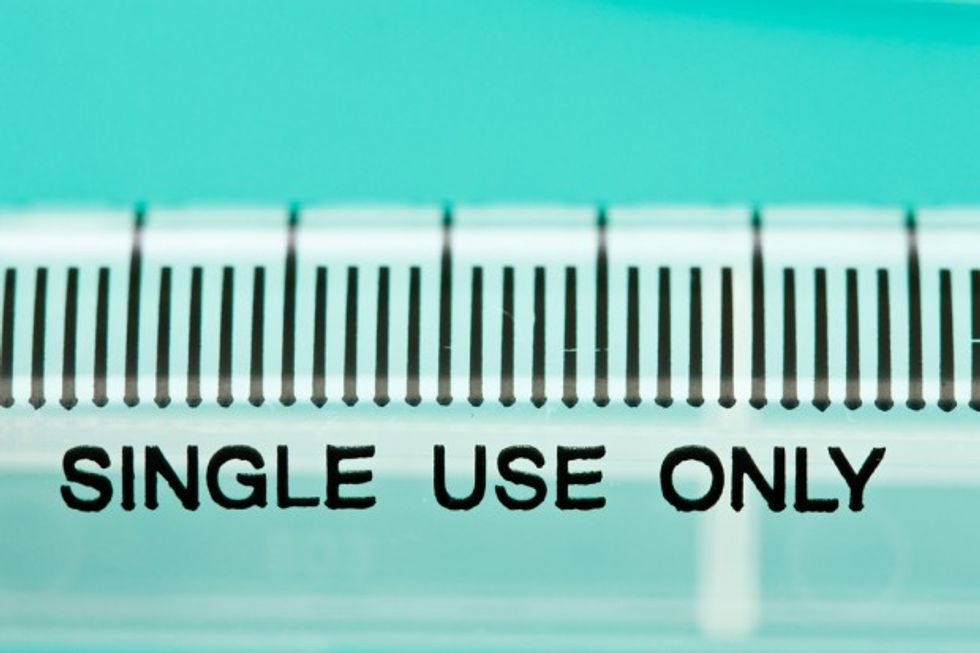
© 2025 Blaze Media LLC. All rights reserved.
What Is a ‘Smart’ Syringe and Why Is the World’s Top Health Organization Pushing for Its Use?
February 24, 2015
"This should be an urgent priority for all countries."
With a recent study estimating the number of deadly infections that are spread due to the use of unclean needles, the World Health Organization is calling for the adoption of "smart" syringes.
According to its most recent data, improper use of needles infected up to 1.7 million people with hepatitis B, up to 315,000 with hepatitis C and up to 33,800 with HIV in 2010.

"Smart" syringes, as described by WHO, are designed to protect the person administering the injection and to prevent the syringe from being used more than once:
Some models include a weak spot in the plunger that causes it to break if the user attempts to pull back on the plunger after the injection. Others have a metal clip that blocks the plunger so it cannot be moved back, while in others the needle retracts into the syringe barrel at the end of the injection.Syringes are also being engineered with features to protect health workers from “needle stick” injuries and resulting infections. A sheath or hood slides over the needle after the injection is completed to protect the user from being injured accidentally by the needle and potentially exposed to an infection.
WHO said it hopes countries will use only "smart" syringes by 2020, unless a specific procedure demands otherwise. WHO acknowledged that at this point "smart" syringes cost at least twice that of traditional models, which are about 3 to 4 cents each.
Watch this video from the BBC showing how a smart syringe works:
“Adoption of safety-engineered syringes is absolutely critical to protecting people worldwide from becoming infected with HIV, hepatitis and other diseases. This should be an urgent priority for all countries,” Dr. Gottfried Hirnschall, director of the WHO HIV/AIDS Department, said in a statement.
In addition, WHO said some injections are unnecessary to begin with because treatment could be administered orally or through another means.
“We know the reasons why this is happening,” Dr. Edward Kelley, director of the WHO Service Delivery and Safety Department, said in a statement announcing the organization's new policy Monday. "One reason is that people in many countries expect to receive injections, believing they represent the most effective treatment. Another is that for many health workers in developing countries, giving injections in private practice supplements salaries that may be inadequate to support their families.”
(H/T: io9)
—
Front page image via Shutterstock.
Want to leave a tip?
We answer to you. Help keep our content free of advertisers and big tech censorship by leaving a tip today.
Want to join the conversation?
Already a subscriber?
more stories
Sign up for the Blaze newsletter
By signing up, you agree to our Privacy Policy and Terms of Use, and agree to receive content that may sometimes include advertisements. You may opt out at any time.
Related Content
© 2025 Blaze Media LLC. All rights reserved.
Get the stories that matter most delivered directly to your inbox.
By signing up, you agree to our Privacy Policy and Terms of Use, and agree to receive content that may sometimes include advertisements. You may opt out at any time.






